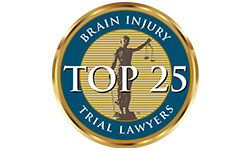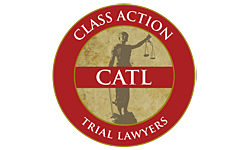Crucial First Steps After a Brain Injury

Experiencing a violent blow or jolt to the head can be a scary scenario. Often, these actions can result in traumatic brain injuries. Unfortunately, these instances are not rare, as around 2.8 million people sustain a traumatic brain injury each year.
These injuries lead to severe consequences that last for a lifetime. Taking the crucial first steps after an injury may help alleviate some of the most severe effects.
Here is what you need to know about the crucial first steps after a brain injury.
Get Immediate Medical Attention
The first and most crucial step after a brain injury is to seek immediate medical attention.
Often, a traumatic brain injury can lead to life-threatening conditions if not treated promptly. Emergency medical providers can give immediate life-saving treatments. But if you are waiting for personnel to arrive, you may have to take a few life-saving steps.
- Depending on whether the injury is an open or closed brain injury, you may need to administer first aid.
- While you may want to place the person in a safe spot, limit their movement. Sometimes, the person could also have a neck injury, and moving them could lead to more injuries.
- You can provide vital information to first responders by assessing their cognitive status. Check to see if they are conscious or unresponsive.
- You also want to watch out for any signs of vomiting. Often, after major trauma to the head, a person will vomit. Make sure to support them so they don’t choke.
Most brain damage is often due to the brain’s loss of oxygen or blood supply. In those crucial moments, you need medical help to keep the brain functioning.
When the brain is deprived of those essential functions, it can start to shut down.
The Next Stage in the Process
After the medical professionals have ensured that the patient is treated for an immediate injury, the next phase is stabilization. During this time, medical providers will ensure proper blood pressure and oxygenation to the brain.
If there are severe and life-threatening injuries, then a medically induced coma may be needed.
At this stage, the brain can rest while the body heals from the accident. Most of the time, these steps can help prevent any secondary brain damage.
Depending on the severity of the injury, surgery may be required. People with moderate or severe injuries could need surgery to repair brain or skull injuries. These procedures involve removing blood clots, repairing skull fractures, or relieving pressure inside the skull.
Prepare for the Long Road to Recovery
After the initial treatment, the patient will recover in the hospital.
During this time, a medical team will monitor their condition and administer any necessary treatments. This stage of care is vital for managing symptoms, preventing complications, and beginning the rehabilitation process.
Once the patient is stable, they may be transferred to a rehabilitation hospital. At this time, intensive therapy begins. The goal of rehabilitation is to regain as much function as possible.
Rehabilitation can take many forms depending on the patient’s needs, such as:
- Physical therapy focusing on improving physical strength, coordination, and flexibility.
- Occupational therapy helping patients relearn daily activities, such as eating, dressing, and bathing.
- Speech therapy assisting patients who have difficulty speaking or understanding language.
These therapies can help patients regain independence and improve their quality of life.
Long-Term Outlook
The effects of a brain injury can last long after the initial injury and recovery period.
These healthcare needs may involve ongoing therapy sessions, regular check-ups with doctors, and potentially lifelong medication.
Unfortunately, life after a brain injury may not look the same as it was before the accident. Around 30% of individuals will require some type of assistance years after an accident. Patients may need to adapt to a new normal by:
- Relearning how to do tasks
- Adapting to physical or cognitive limitations
- Finding new ways to enjoy life
It’s a journey that requires patience, resilience, and a lot of support. If the brain injury was the result of another person’s actions, you may be able to file a personal injury lawsuit.
Examining Your Legal Options
Unfortunately, brain injuries can be the result of numerous negligent actions, such as medical malpractice or a vehicle accident.
If you or a loved one has suffered a brain injury as the result of someone’s actions, you may need to look at the next steps for your case.
Obtain an Accident Report
For those accidents that involve another party (such as a car accident), you will want to get the accident report from law enforcement. This report is the official document of the accident, and it will serve as the basis for any legal action.
Within the report, you will find vital information about the incident, including:
- Date, time, and location of the accident
- Names of the parties involved
- Description of the incident
Seek Legal Counsel
Once the immediate medical needs are addressed and an accident report is filed, you will want to reach out to a lawyer who understands injury cases. During this consultation, the lawyer will likely ask about the details of the accident, your injuries, and the impact on your life.
They can help determine who is liable for the injuries and assist with calculating damages from the incident. In these cases, medical treatment is often not short-term.
Due to the severity of the inquiries, many accident victims may need lifelong care.
Preserve and Collect Evidence
Another crucial step in building a strong case is gathering evidence. These records, photography, witness statements, and medical reports can play a major role in proving your case. Since some evidence may be time-sensitive, you will want to start this process as soon as possible.
Prepare for the Legal Process
After you have met with your attorney and initiated the filings, it is time to prepare for the legal process. During this time, you will work with your attorney toward a settlement. Your attorney will handle all the aspects of the case, from negotiating with the insurance company to finalizing a settlement.
With legal assistance, you can focus on the most important people in this entire process: you and your loved ones.
Learn More About Your Legal Options
Brain injuries often take a long time to heal, leaving victims and their families to deal with a long road to recovery. Unfortunately, some will never fully recover and now must deal with a new way of life.
If you or a loved one has suffered a brain injury as a result of the actions of another person, it may be time to contact a personal injury lawyer in Lexington. At the Golden Law Office, let’s help you take the next step in your case.
Golden Law is a local, Kentucky Law Firm, attorneys/lawyers in Fayette County, Kentucky, working in the fields of personal injury, auto accidents, car and truck wrecks; medical malpractice: doctors, hospitals & nursing homes; senior living abuse: neglect, physical abuse, emotional abuse, dehydration, bedsores, catastrophic injuries, and broken bones. If you are considering a lawsuit, call us at 859.469.5000 for a free consultation. We are located at 771 Corporate Dr. Suite 800/ Lexington, Kentucky 40503. We handle cases all over the Commonwealth of Kentucky. We have represented and trained people in major insurance companies & major trucking companies. We have first hand experience and know the ‘inside of the insurance business’ … that’s a distinction that no other law firm can make. We’re Your Advocate. Dale Golden, Laraclay Parker.











